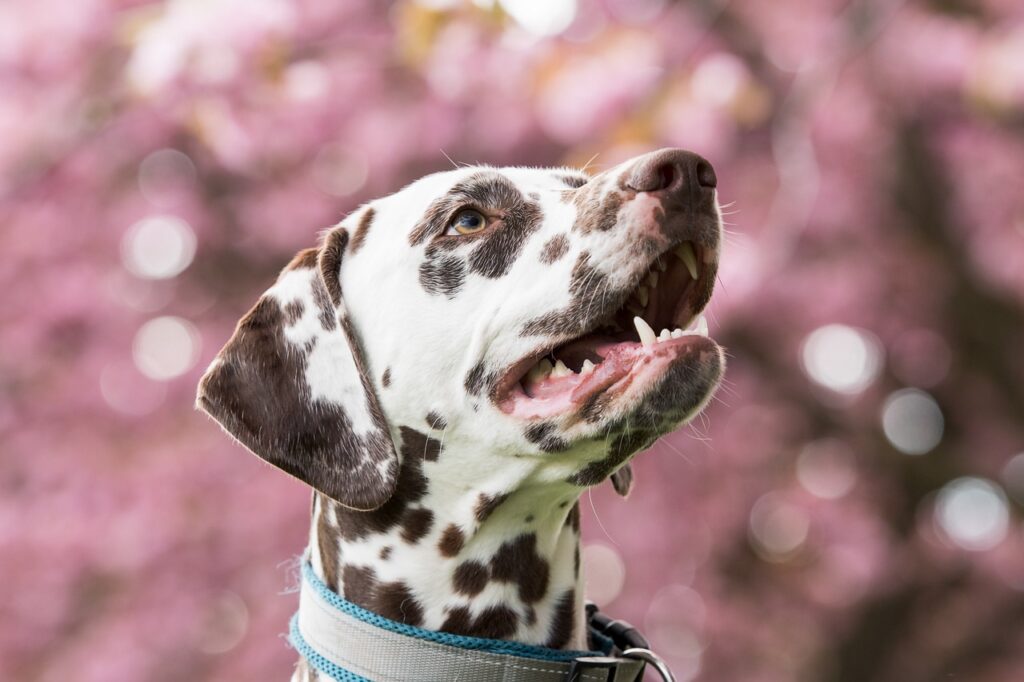Can Dogs Eat Noodles? – Yes, They can
Yes, dogs can eat noodles, but there are some important considerations to keep in mind. Noodles are not harmful to dogs in most cases, but they don’t provide essential nutrients that dogs need for a balanced diet. It’s fine to offer plain, cooked noodles to your dog as an occasional treat, but they should not be a regular part of a dog’s diet. Make sure to avoid giving noodles that contain onion, garlic, excessive spices, or rich sauces, as these ingredients can be harmful to your dog.
Can Puppies Eat Noodles?
Like adult dogs, puppies can have plain, cooked noodles in small amounts. However, their digestive systems are more sensitive. For young puppies especially, the focus should be on high-quality puppy food that supports their growth and development. A puppy’s diet should be more strictly observed and noodles can fill up their small stomachs, leaving less room for more nutritious foods.
Things to consider when feeding noodles to puppies?
When considering giving noodles to puppies, remember that their diet impacts their health significantly. Since noodles are carbs, they can lead to weight gain and don’t offer the protein, fats, and vitamins puppies need in large amounts. Always prioritize a complete and balanced commercial puppy diet, and consult your vet before introducing human foods like noodles to your puppy’s diet.
Nutritional Benefits of Noodles for Dogs – Why Noodles are good for Dogs?
Carbohydrate Energy
Noodles are primarily made of carbohydrates, which provide energy. However, dogs can usually get the carbs they need from their regular dog food.
Low in Fats and Proteins
Noodles typically have a low fat and protein content, which can be advantageous if your dog needs a low-fat diet due to health issues.
Variability
Depending on how they are prepared, noodles may be enriched with other nutrients, like vegetables or lean meats, which can be beneficial for dogs.
Digestibility
Plain cooked noodles are generally easy to digest for dogs, making them a safe treat option for those without wheat allergies or intolerances.
Texture and Taste
Dogs may enjoy the change in texture and taste that noodles offer, which can be a nice way to add variety to their diet.
Potential Allergies: Can Dogs Be Allergic to Noodles?
Yes, dogs can be allergic to noodles, especially if they contain wheat, which is a common allergen in dogs. If your dog has a known grain allergy, it is best to avoid noodles altogether.
Symptoms of Noodle Allergies in Dogs
- Skin irritations: Look for itching, redness, or hives on the skin.
- Digestive issues: Symptoms like vomiting or diarrhea after eating noodles could be a sign of an allergy.
- Chronic ear infections: Frequent ear infections can also be a symptom of a food allergy.
What to Do If Your Dog Shows Symptoms?
- Visit the vet: If you suspect an allergy, a vet can help with diagnosis and treatment.
- Dietary elimination: Your vet may recommend an elimination diet to identify the allergen.
- Alternative foods: There are many hypoallergenic dog diets available to reduce allergy symptoms.
Recommended Amount: How Much Noodles Can a Dog Consume?
The recommended quantity of noodles that a dog can consume should be very limited since it’s not an essential part of their diet. Treat noodles as a sporadic snack, not a meal replacement, and ensure they constitute no more than 10% of your dog’s daily calorie intake.
Things to Consider When Feeding Noodles to Dogs
Always be wary of any additional ingredients in noodles, such as salt, butter, and sauces, which can be unhealthy for dogs. Ensure the noodles are cooked and plain when given as a treat, and use them only sparingly within your dog’s diet.
How to Feed Noodles to Dogs: A Quick Guide
Noodles can be a fun, occasional treat for dogs if served properly. It’s important to ensure they are cooked without any seasonings or sauces that could be harmful to dogs.
Plain Noodle Twist
Simply boil the noodles in water without any salt or oil. Let them cool and serve a few plain strands to your dog as a treat.
Veggie Noodle Mix
Add some dog-safe vegetables like carrots or green beans to the plain noodles for an extra treat. Remember to cut veggies into manageable pieces.
Meaty Noodle Delight
Stir in some plain, cooked chicken or turkey into the noodles for a protein boost. Make sure there are no bones or heavy spices included.
Conclusion
Noodles are a safe treat for dogs when offered in moderation and without any unsuitable toppings or spices. They should complement a well-balanced diet tailored to your dog’s nutritional needs. Monitoring any potential allergic reactions and keeping portions small are crucial to keeping your dog happy and healthy. As with any treat, it’s best to consult with your vet before introducing anything new to your pet’s diet.



